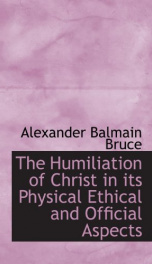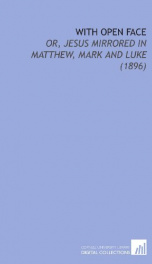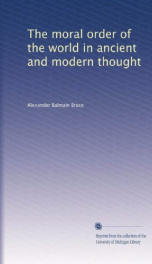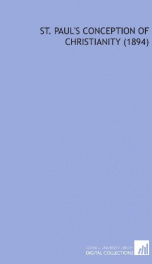the humiliation of christ in its physical ethical and official aspects

Purchase of this book includes free trial access to www.million-books.com where you can read more than a million books for free. This is an OCR edition with typos. Excerpt from book: INTERPRETATION OF PHILIPPIANS II. 5-9. 15 ally pre-existent Logos, nevertheless admit that it is at least by implication taught in the passage. The former author, indeed, seeks to deprive the statements contained therein of all theological value, by representing them as of an ' ascetic' and ' rhetorical' character; the expressions not being intended to be ' didactically fixed,'1a convenient method of getting rid of unacceptable theological dogmas, which may be applied to any extent, and which, if applied to Paul's Epistles, would render it difficult to extract any theological inferences therefrom, inasmuch as nearly all the doctrinal statements they contain arise out of a practical occasion, and are intended to serve a hortatory purpose. Strauss, on the other hand, making no pretence of adhering to Scripture in his theological views, frankly acknowledges that, according to the doctrine of Paul in this place, Christ is One who, before His incarnation, lived in a divine glory, to which, after His freely assumed state of humiliation was over, He returned.2 It is now time that I should explain the sense in which I understand the passage referred to, which I shall do very briefly, relegating critical details to another place.8 The subject spoken about is the historical person Jesus Christ, conceived of, however, as having previously existed before He entered into history, and as, in His pre-existent state, supplying material fitted to serve the hortatory purpose the apostle has in view. Paul desires to set before the Church in Philippi the mind of Christ in opposition to the mind of self-seekers, and he includes the pre-existence in his representation, because the mind he means to illustrate was active therein, and could not be exhibited in all its sublimity if the view were res... --This text refers to an alternate Paperback edition.
Info about the book
Author:
Series:
Unknown
ASIN:
B003OLXRCA
Rating:
4/5 (4)Your rating:
0/5
Languge:
English
Users who have this book
Users who want this book
What readers are saying
What do you think? Write your own comment on this book!
write a commentif you like the humiliation of christ in its physical ethical and official aspects try:
Other books by this author
Do you want to read a book that interests you? It’s EASY!
Create an account and send a request for reading to other users on the Webpage of the book!









